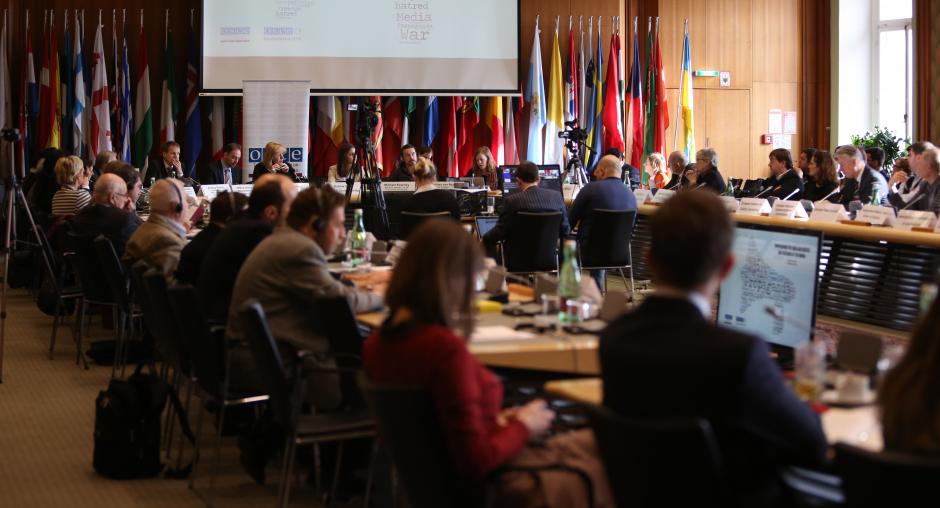Dialogue, media literacy and pluralism ways to counter propaganda for war and hatred, participants at OSCE expert meeting say

VIENNA, 12 February 2016 – Media experts, journalists, diplomats, policymakers and government representatives gathered in Vienna today for an expert meeting to discuss the different aspects of the phenomenon of propaganda and its effects on media freedom and ultimately to the well-being of society.
“Propaganda for war and hatred is detrimental to free expression and media freedom,” the OSCE Representative on Freedom of the Media, Dunja Mijatović, said. “Dialogue and activities to promote media literacy and democracy based on peace, freedom of expression, pluralism and diversity, are a must to effectively deal with the issue of propaganda.”
At the expert meeting, jointly organized by the Office of the OSCE Representative on Freedom of the Media and the German OSCE Chairmanship, the participants discussed, among other issues, the legal case against propaganda, best practices to protect media freedom, and the challenges propaganda brings for journalism, online and offline.
Germany’s Representative to the OSCE, Ambassador Eberhard Pohl cited Chairperson-in-Office Frank-Walter Steinmeier that times of conflict were unfortunately also times of propaganda and of distorted images. “Today´s discussions have shown again that reporting based on reliable facts is needed more than ever.”
He pointed out that the German Chairmanship put a focus on Freedom of Expression and Freedom of the Media: “We wish to further facilitate dialogue on the challenges and mechanisms of propaganda and on reporting in times of crisis. Promoting ethics of journalism and supporting strengthening self-regulatory mechanisms require continuous efforts which we are willing to support throughout the year. And we want to take a closer look at the challenges of online reporting.”
The OSCE media freedom representative’s Office has been engaged in a campaign with several activities in the past 18 months to tackle the issue of propaganda, including considerable time and resources spent on working with Russian and Ukrainian journalists in confidence-building measures designed to bridge the gap between them, and training for young journalists from the two states on topics such as ethics in journalism.
“This expert meeting, and the dialogue between media organizations of the Russian Federation and Ukraine that my Office initiated in 2014, can hopefully contribute to an extremely important healthy debate on this issue,” Mijatović said. “The antidote to propaganda is media pluralism, ethics, professionalism and a dialogue based on mutual respect.”
During the meeting attendees put forward suggestions and proposals on what could be done to counter propaganda and ensure and strengthen media freedom. Based on the discussions at the meeting, the Representative will issue her recommendations on this issue.
The OSCE Representative on Freedom of the Media observes media developments in all 57 OSCE participating States. She provides early warning on violations of freedom of expression and media freedom and promotes full compliance with OSCE media freedom commitments. Learn more atwww.osce.org/fom, Twitter:@OSCE_RFoM and on www.facebook.com/osce.rfom.
